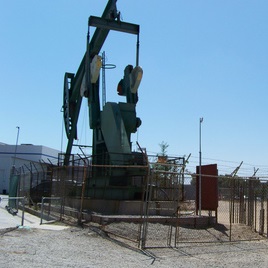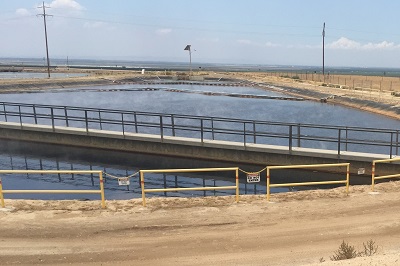
October 22, 2015
You have probably heard by now that the oil industry played hard this year—and spent untold millions of dollars—to kill or weaken legislation that would have reduced California’s dependence on their most polluting products.
Some of those millions were spent on the people that you voted for to represent you in Sacramento.
Spending money to influence legislators isn’t new. Sierra Club California does that every day when our staff goes to work. Much of the money we spend on staff salaries counts as lobbying money on campaign finance reports.
During election cycles, our volunteers and supporters contribute money to our Political Action Committee and then the PAC contributes money to legislative candidates that earn Club endorsement (which itself is a multi-tiered, volunteer-led process). The typical contribution isn’t a lot—usually $250 or $500. But it firmly signals our support.
Campaigning in this state requires candidates to become money-begging machines. Recently I met with a first-time legislative candidate who lamented that he was spending at least 3 hours a day calling people asking for money to wage a campaign—that was in addition to planning fundraisers, brushing up on policy issues, meeting with issue experts and doing his regular day job.
On certain days, if you are walking near the capitol in the afternoon, you’ll see legislators walking alone to any of several campaign fundraisers’ offices where they spend their lunch hour--or more-- dialing for dollars.
Campaigns are expensive. An Assembly campaign costs more than a million dollars in some districts, and in most urban districts, a candidate isn’t considered a serious contender in a race for an open seat unless he or she has accumulated a couple of hundred thousand before the election year starts.
So it figures that many legislators will be open to money from anywhere they can find it.
Or does it?
Is it right, really, in an era when we know that using oil is creating serious global climate change and local air pollution, to take money from the oil industry to win elective office?
Some legislators will argue that just taking the oil industry’s money doesn’t mean that the oil industry owns their vote. That’s true for some and it plays out that way in the Capitol for some. In one of his more amusing and overtly sexist statements, the late state treasurer and political godfather Jesse Unruh said decades ago about money from lobbyists: “If you can't eat their food, drink their booze, screw their women, take their money and then vote against them you've got no business being up here."
That may be true, but the best way to signal that an industry has no control over you is to do as another former political presence, Nancy Reagan, urged about the appropriate response to drug dealers: “Just say no.”
We recently published our annual report card on legislators and their votes. Some legislators, given a chance to vote on bills that were opposed heavily by the oil industry, chose to not vote at all or to vote against the bills. Good examples of such bills are Senate Bill 32 (which would have codified strong greenhouse gas reduction goals for 2050), Senate Bill 454 and Assembly Bill 356 (both of which would have protected groundwater from oil waste injection).
 A friend of ours helped us use the Secretary of State’s new search tool, called Power Search, to examine campaign finance records spanning the period of January 1, 2014 through September 15, 2015. What we ended up with was a nice graphic that shows which legislators received oil industry contributions during that time, and how much they received.
A friend of ours helped us use the Secretary of State’s new search tool, called Power Search, to examine campaign finance records spanning the period of January 1, 2014 through September 15, 2015. What we ended up with was a nice graphic that shows which legislators received oil industry contributions during that time, and how much they received.
The numbers we show probably underestimate the oil industry’s giving to some campaigns. For instance, our figures don’t include money that the industry gave to political parties or caucuses that would later be distributed to candidates.
Of the top ten recipients of oil money in our analysis, seven are Democrats whose score on our legislative report card was 67 percent or lower. That means they would get a D or F grade on their environmental performance. These were Susan Bonilla, Jim Cooper, Adam Gray, Rudy Salas, Jr., Sebastian Ridley-Thomas, Michael Gipson and Cheryl Brown.
Interestingly, some of the leaders of the drive to weaken or kill environmental bills that addressed oil this year didn’t make it into the top 10 recipients. Jim Frazier and Henry Perea, for instance, collected less than half the oil money that Susan Bonilla did, and ranked 16th and 17th by amount collected. But they still collected more than $15,000. Perea scored a 67 percent on our report card, and Frazier scored a 56 percent.
We don’t know how much the oil money influenced these legislators, or any of their votes on the bills. However, some of these numbers alone suggest that money made a difference.
But here’s an idea: Don’t make assumptions about your legislators. Instead, look at the report card and the oil chart. If the numbers look suspicious to you, then call your legislators and ask what difference getting that much oil money makes in their decisions on environmental issues. If they say none—and a lot will likely say none—then ask if they are willing to stop taking oil money.
If you don’t know who your legislators are, you can find out here. Then you can look up their phone numbers at assembly.ca.gov or senate.ca.gov.
Now go make those calls. And let me know what you hear.
Sincerely,

Kathryn Phillips
Director
Sierra Club California is the Sacramento-based legislative and regulatory advocacy arm of the 13 California chapters of the Sierra Club.
Please consider becoming a sustaining donor.